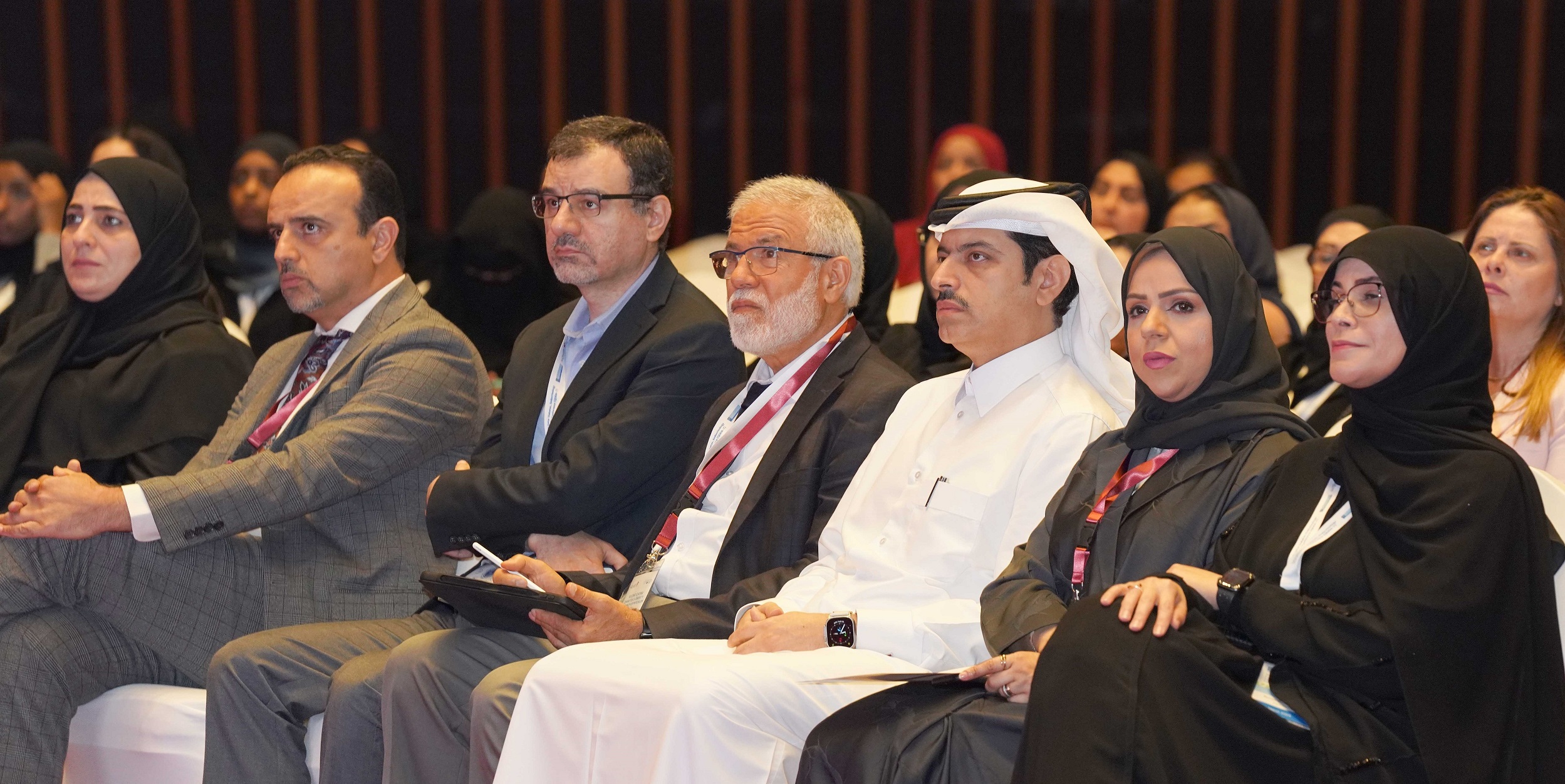The Second Qatar Diabetes and Obesity Research Symposium brought together diverse research topics with clinical impact. Speakers included renowned researchers from Qatar and international research leaders. The Symposium was enthusiastically attended by 500+ attendees.
In his opening speech, Sheikh Dr Mohammed bin Hamad Al Thani, Director of the Public Health Department at the MoPH, highlighted “The Ministry of Public Health is committed to driving change for future generations by connecting the dots between obesity and diabetes. While the exact causes of diabetes are still not fully understood, obesity is believed to account for 60-70% of the risk of developing type 2 diabetes. Preventing obesity by keeping weight under control, exercising more, eating healthy diet may be the key to preventing diabetes. On the other hand, insulin resistance prevents glucose from entering our cells and results in elevated blood glucose which is then converted in fatty acids and stored as fat resulting in obesity. Preventing the onset of diabetes may be the key to preventing obesity. The good news is that is that overweight, obesity, prediabetes, and type 2 diabetes are largely preventable”.
Prof. Shahrad Taheri, Chair of the National Diabetes Strategy Research Sub-Committee and Director of the National Obesity Treatment Center, opened the event by saying “Despite significant progress, the field still has important challenges ahead. The symposium fosters collaboration between Qatar’s scientists and institutions which is key to fast-tracking research in diabetes and obesity and enhancing the quality and outcomes for people living with diabetes and obesity in Qatar. In addition to this annual gathering, the National Diabetes Committee is organizing and delivering complimentarily, CPD accredited, Diabetes and Obesity Research Live Webinars for healthcare professionals across the sector. The online bi-weekly delivery of the webinars allows for continuous updates on key diabetes and obesity research projects taking place in Qatar and serves as an invaluable resource to the multidisciplinary community of researchers, physicians, nurses, and allied health care professionals.
, Dr. Kholoud Al Mutawaa, Head of Non-Communicable Disease at MoPH and Co-Chair of the National Diabetes Committee noted “The 2023 Diabetes and Obesity Research Symposium successfully provided information on new advances in diabetes and obesity research in Qatar. The in-person program offered one day of lectures and discussions dedicated on diabetes and obesity research, delivered by national and international leaders in the field, including a poster exhibition; and is followed by two days of lectures covering diverse aspects of endocrinology, diabetes, pituitary and thyroid disorders, obesity, pediatric endocrinology, and lipid management, as part of the annual Qatar Diabetes, Endocrinology and Metabolic Conference (QDEM-7) which continues on 3rd and 4th March. We thank the Scientific and Planning Committee of the Second Qatar Diabetes and Obesity Research Symposium for designing such an interesting Program”.
Prof. Abdul-Badi Abou-Samra, Co-Chair of the National Diabetes Committee and Director of QMI, emphasized “Diabetes and obesity are major health care challenges globally. In Qatar, diabetes stands at 17 percent in adults, which is almost twice the global average. A further 20% of the population have prediabetes. Obesity and type 2 diabetes are interconnected. In Qatar, specifically, it is estimated that for every two out three people with type 2 diabetes, obesity is the cause. However, weight loss with appropriate early lifestyle interventions can reverse the course of diabetes as proven by the HMC’s diabetes reversal program. The National Diabetes Committee has been tasked to develop a plan for obesity in Qatar to be included in the next National Diabetes Action Plan” he added.
























